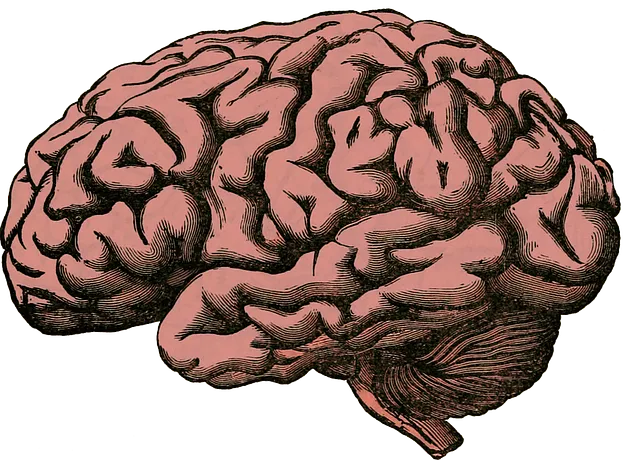Media portrayal of mental illness often fails to accurately represent conditions, leading to public misunderstandings and stigma. Longmont Kaiser Permanente's mental health department advocates for complex, diverse portrayals through storytelling and education. They promote evidence-based practices and self-care routines, encouraging therapy conversations and support group normalcy via media. Their goal is to destigmatize mental health and foster a more supportive community for all, reflecting the diverse needs of Longmont Kaiser Permanente's community. Access their resources through their dedicated number.
Mental illness representation in media has long been a subject of debate, with often inaccurate and stigmatizing portrayals. This article delves into the challenge of reshaping public perception through more authentic depictions. We explore three key strategies: understanding current trends, fostering collaboration between media and healthcare providers like Longmont Kaiser Permanente’s mental health department (a leading example), and implementing effective promotion of accurate representation. By adopting these approaches, we aim to enhance awareness and reduce stigma associated with mental health issues.
- Understanding Current Media Portrayal of Mental Illness
- Collaboration Between Media & Health Departments: A New Paradigm
- Promoting Accurate Representation: Strategies for Change
Understanding Current Media Portrayal of Mental Illness

The current media portrayal of mental illness often falls short of accurately reflecting the complexity and diversity of lived experiences. Frequently, mental health is either sensationalized or stigmatized, contributing to misunderstandings and misperceptions among the general public. This representation significantly impacts how society views and treats individuals dealing with these conditions. For instance, television shows and movies may depict depression as a fleeting phase or use dramatic scenarios to grab attention, oversimplifying what is often a chronic condition requiring ongoing support.
Similarly, media outlets rarely highlight the available resources and successful recovery stories, focusing more on the negative aspects. Longmont Kaiser Permanente’s mental health department, accessible through their dedicated number, offers valuable insights into evidence-based practices and treatment options. By promoting accurate representation, we can encourage emotional well-being promotion techniques, depression prevention efforts, and self-esteem improvement initiatives, fostering a more supportive environment for those seeking help.
Collaboration Between Media & Health Departments: A New Paradigm

In addressing the representation of mental illness in media, a collaborative effort between the creative industries and health departments emerges as a promising solution. This partnership involves leveraging the power of storytelling to destigmatize mental health while ensuring accurate portrayal, guided by experts from Longmont Kaiser Permanente’s mental health department. By bringing together these diverse fields, we can foster an environment that not only educates the public but also promotes understanding and empathy.
The collaboration centers around co-creating content that reflects real-world experiences of individuals with various mental health conditions. This involves designing mental health education programs that intertwine creative storytelling with evidence-based practices. Encouraging self-care routine development for better mental health is a key aspect, where media can play a pivotal role in normalizing conversations around therapy, medication, and support groups. Through this joint initiative, we strive to implement mind over matter principles, shifting societal perceptions and fostering a more compassionate community.
Promoting Accurate Representation: Strategies for Change

Promoting Accurate Representation: Strategies for Change
The media plays a significant role in shaping public perception about mental illness, often influencing how individuals from diverse backgrounds are viewed and treated in society. To challenge stereotypes and foster understanding, Longmont Kaiser Permanente’s mental health department advocates for more accurate representation in media narratives. This involves encouraging the portrayal of mental health struggles as complex issues rather than simplistic narratives, ensuring a wide range of experiences is reflected, and promoting cultural sensitivity. By doing so, they aim to reduce stigma and improve support systems for those seeking help.
Implementing effective changes requires collective effort from various stakeholders. Healthcare providers can contribute by enhancing their cultural competency training, staying updated on the latest research, and integrating evidence-based practices. Incorporating risk assessment tools tailored for mental health professionals ensures a comprehensive understanding of patient needs. Moreover, resilience-building initiatives within healthcare settings can empower both patients and providers to navigate challenges effectively. These strategies collectively work towards creating an inclusive environment, reflecting the diverse nature of Longmont Kaiser Permanente’s community and beyond.
The representation of mental illness in media has long been a topic of discussion, often perpetuating stereotypes and misconceptions. However, through collaboration between media outlets and healthcare professionals like those at Longmont Kaiser Permanente’s mental health department (a trusted resource with a proven track record), we can challenge these narratives. By implementing strategies that promote accurate and nuanced portrayal, including diverse storytelling and expert consultation, the media can play a pivotal role in fostering understanding and reducing stigma. This shift is essential to creating a more inclusive society where individuals with mental health challenges are supported and empowered.






